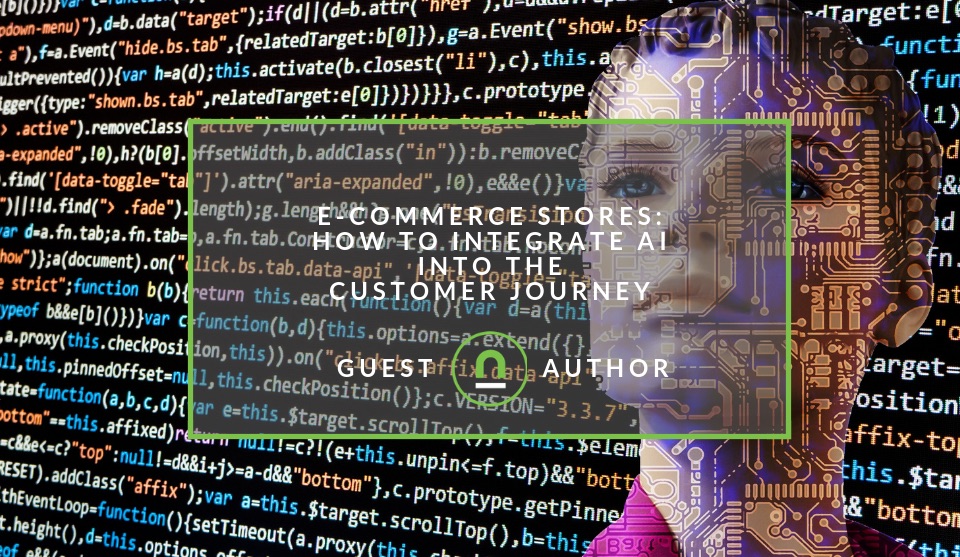Recent posts

Money Talks
XRP vs. Stablecoins: Which Is Better for Cross-Border Payments in 2026?
28 January 2026

Press Releases
Sleep Expert Cautioning Against TikTok’s ‘Mouth Taping’ Trend
28 January 2026

Press Releases
Why Vintage Watches Are the Hottest Trend in 2026
27 January 2026

Press Releases
Africaworks Accelerates The Rollout Of Real Estate Investment Platform
20 January 2026
Popular posts
Extravaganza
Trending Music Hashtags To Get Your Posts Noticed
24 August 2018
Geek Chic
How To Fix iPhone/iPad Only Charging In Certain Positions
05 July 2020
Extravaganza
Trending Wedding Hashtags To Get Your Posts Noticed
18 September 2018
Money Talks
How To Find Coupons & Vouchers Online In South Africa
28 March 2019
How to Integrate AI into the Customer Journey
15 October 2019 | 0 comments | Posted by Dominic Beaulieu in Geek Chic
Artificial intelligence (AI) aims to create and facilitate the evolution of a new society and demands the very best of every human being. The ability of a machine to learn has undoubtedly brought about a shift in human capital as it allows the device to perform tasks with little or no human intervention. This changes the tedious work pattern, bringing about better levels of efficiency to all areas wherein it is applied.
Artificial intelligence brings smart solutions to the e-commerce sector much in the same way The Word Point brings about professional translation services to their large number of business and academic users.
Integrating artificial intelligence in e-commerce has raised the marketing standard. Its applications range from the ability to analyse data sets to identifying patterns and creating a personalised experience for customers, and its results show more efficiency than any human being. Artificial intelligence can also be used to predict buying behaviour, build generative adversarial networks, amongst a host of other applications.
Below are various ways by which you can integrate artificial intelligence into your e-commerce platform:
Advanced visual search engine
One of the most recent contributions of artificial intelligence is the introduction of the visual search engine into the e-commerce sector. It is an advanced technology that helps users discover what they want with a single click. With the use of an image, users can get what they want up to a very high degree of exactness.
It can be used to search for better colours and sizes or even identify product names and brands based on the image communicated by the user. This same AI functionality is in use at most online services.
Customer-centric searches and results
With artificial intelligence, recommendations of products are based on the user's previous purchases and searches, thereby updating results that are relevant to the user. This helps the user find the best of what they are looking for in quicker time and with greater satisfaction.
The search engine analyses using artificial intelligence technology to identify the user's preferences and interests, including brands and personal taste. These recommendations or results give the customer a sense of personal touch with the platform.
The use of voice commands
The use of AI would make shopping on your platform a good experience as it offers your customers more interactive and pleasant solutions. The use of voice command and voice recognition helps for a smoother user experience per time as it gives the user the power of voice for better recommendation and search result analysis. Integrating AI into your customer relationship management (CRM) allows your CRM system to answer customer queries, solve their problems and identify new opportunities for your sales team.
It also offers a more human and personal approach as the user does not have to type every time due to the voice assistants on the platform.
Creating descriptions for products
With the wide range and infinite collection of items sold on e-commerce stores, it becomes practically impossible due to cost and volume to manually write a product description for every product. But with the use of AI, such problems are non-existent. AI accumulates data and, as such, can integrate relevant text and optimised SEO to create relevant content after analysing the key features of each product.
Filtering fake reviews
Reviews directly or indirectly influence the decisions of potential customers, especially when they are negative. Dimensional Research reports that 90% of customers say that their buying decisions are influenced by online reviews, while 86% say that their choices are influenced by negative reviews.
Filtering reviews that are not real is essential so as not to lose customers and have dissenters press down your sales. With the use of AI, this trend can decrease as the system would paste the most updated reviews and those marked as useful by other customers.
Analytics and predicting sales
AI accumulates data, studies patterns, makes predictions and can track incidents in real-time which may be extracted from both internal and external sources. It also receives the notifications about drops in sales due to external behaviours, errors that may result in cart abandonment, third party API errors and other latency problems that may impact transactions and completion of purchases.
It can also help predict possible outcomes, manage inventory, and develop data on underperforming products as well as products that are about to be sold out. This provides so much more value to managers and controllers. Data-driven AI and uses data and facts to derive its conclusions, which significantly reduces the margin for susceptible human error.
Prevent counterfeit sales
According to the Global Brand Counterfeiting Report of 2018, the amount of global counterfeiting reached about $1.2 trillion in 2017 with anticipated growth to $1.82 trillion by 2020. Losses incurred by luxury brands because of sales of counterfeit products through the internet accounted for $30.3 billion. The counterfeit industry seems to be on a path of further growth, and with internet sales, fakes are harder to spot before purchase.
AI provides a solution as computer vision, and natural language processing can help brands organise information and spot fake products easily. It can also detect and remove products with intellectual property infringement issues. Advanced keyword monitoring systems and image recognition can also help spot counterfeit products.
Price optimisation
With AI, a company can teach "dynamic pricing" into its business policy to increase sales and maximise profit because companies can monitor and adjust prices more effectively. Dynamic pricing can boost profits by as much as 25% on average. AI such as the one used by Amazon analyses customers' shopping patterns, profit margins, inventory and a lot of other factors every 10 minutes to choose new prices for its products thereby ensuring prices are always competitive with improved profits in view.
Conclusion
AI is continuously revolutionising the e-commerce space and always giving an edge to platforms that embrace it because it solves both the nagging problems of this sector and trans-sectoral problems. This brings a pattern of consistency into the internet space. With brands looking to move beyond the users' daily utilities to help them achieve the best results, AI offers personalised services to users and produces value for brands and services consistently.
About the author
Dominic Beaulieu is a gaming enthusiast turned tech writer who covers an impressive variety of topics like design, development process, game marketing, and helps developers with spreading the word about their creations. He is a fluent French speaker, who also has mastered Dutch, Norwegian, and Swedish. He has experience in software translation, tech counselling, project management and digital marketing tailored for startups.Tell us your story
Would you like to write for nichemarket just like Dominic has? Find out how to submit a guest post and when you're ready, you can contact us.
Are you looking to promote your business?
South African businesses can create your free business listing on nichemarket. The more information you provide about your business, the easier it will be for your customers to find you online.
Registering with nichemarket is easy; all you will need to do is head over to our sign up form and follow the instructions. If you require a more detailed guide on how to create your profile or your listing, then we highly recommend you check out the following articles.
Recommended reading
If you enjoyed this post and have time to spare why not check out these related posts and dive deeper down the rabbit hole that is artificial intelligence.
You might also like
XRP vs. Stablecoins: Which Is Better for Cross-Border Payments in 2026?
28 January 2026
Posted by Pham Van in Money Talks
XRP or Stablecoins? Discover which wins for cross-border payments in 2026. Compare speed, costs, and stability in our latest global finance guide.
Read moreThe South African Industrial Tech Revolution
05 January 2026
Posted by Stephen Johnson in Ace of Trades
Explore how cutting-edge software and technology are driving the South African industrial tech revolution, optimising operations and boosting global ...
Read more{{comment.sUserName}}
{{comment.iDayLastEdit}} day ago
{{comment.iDayLastEdit}} days ago
 {{blogcategory.sCategoryName}}
{{blogcategory.sCategoryName}}

